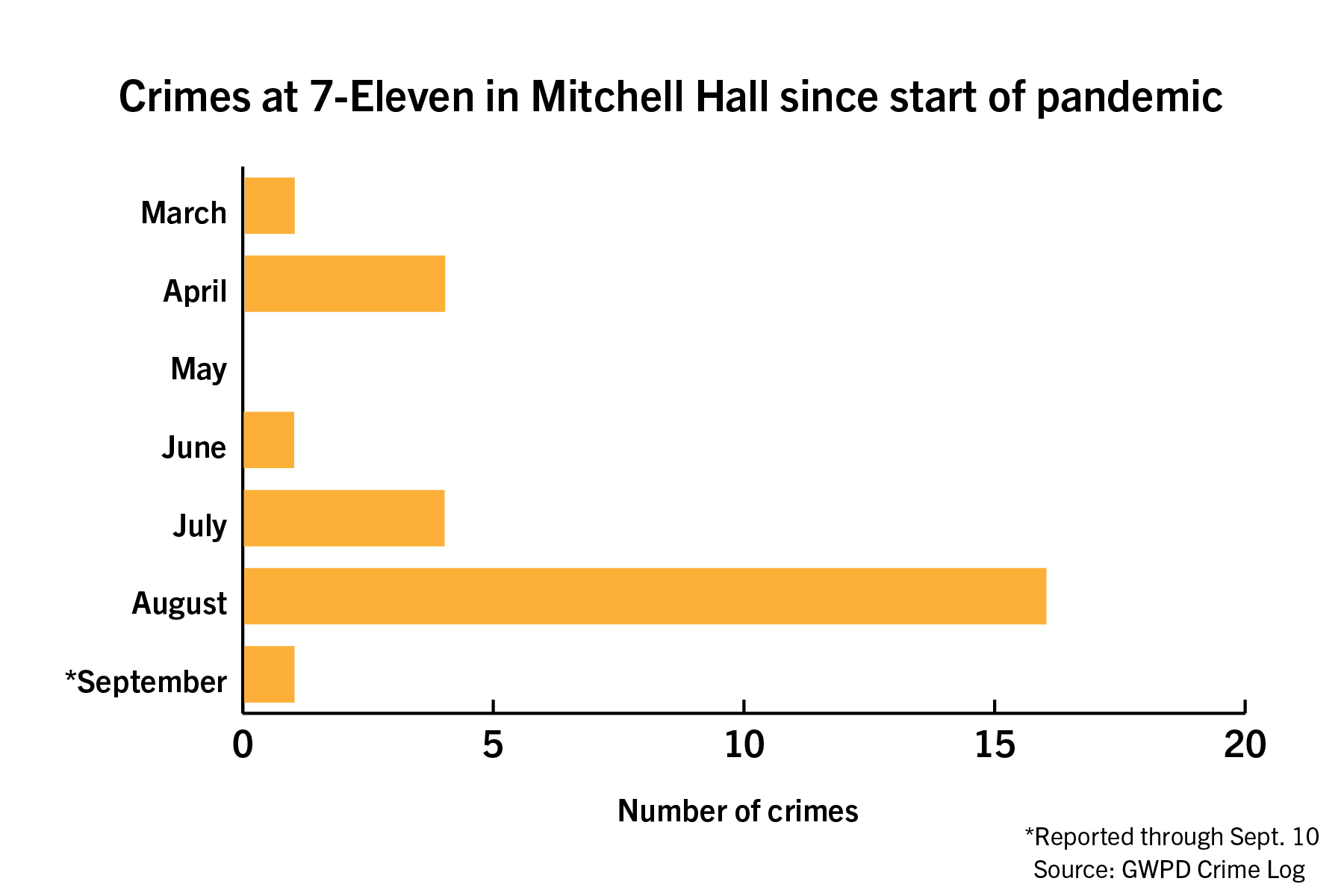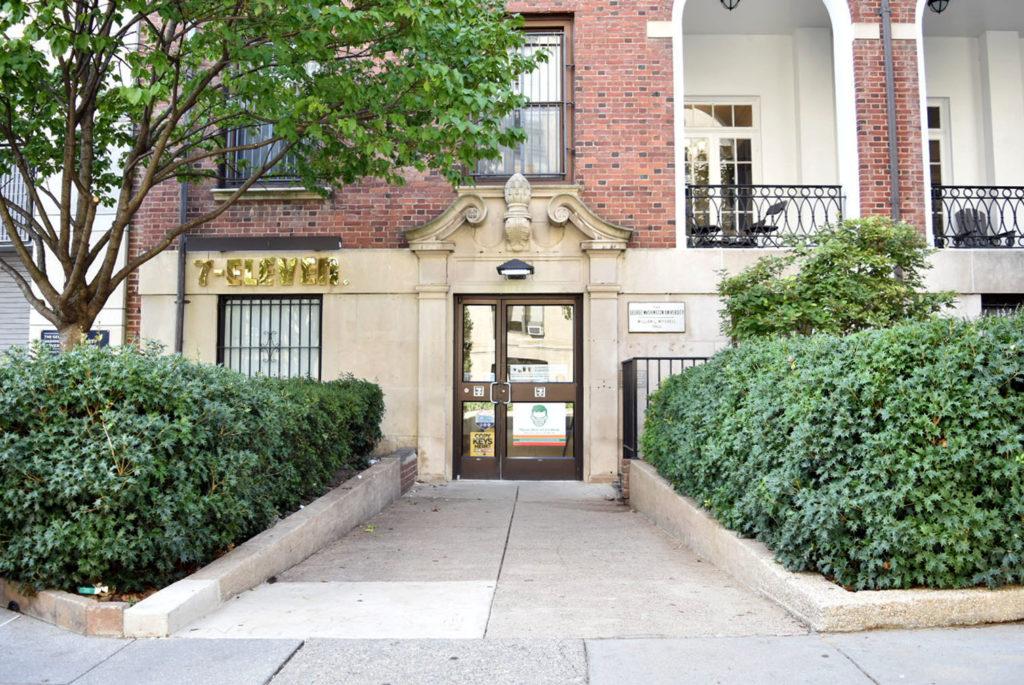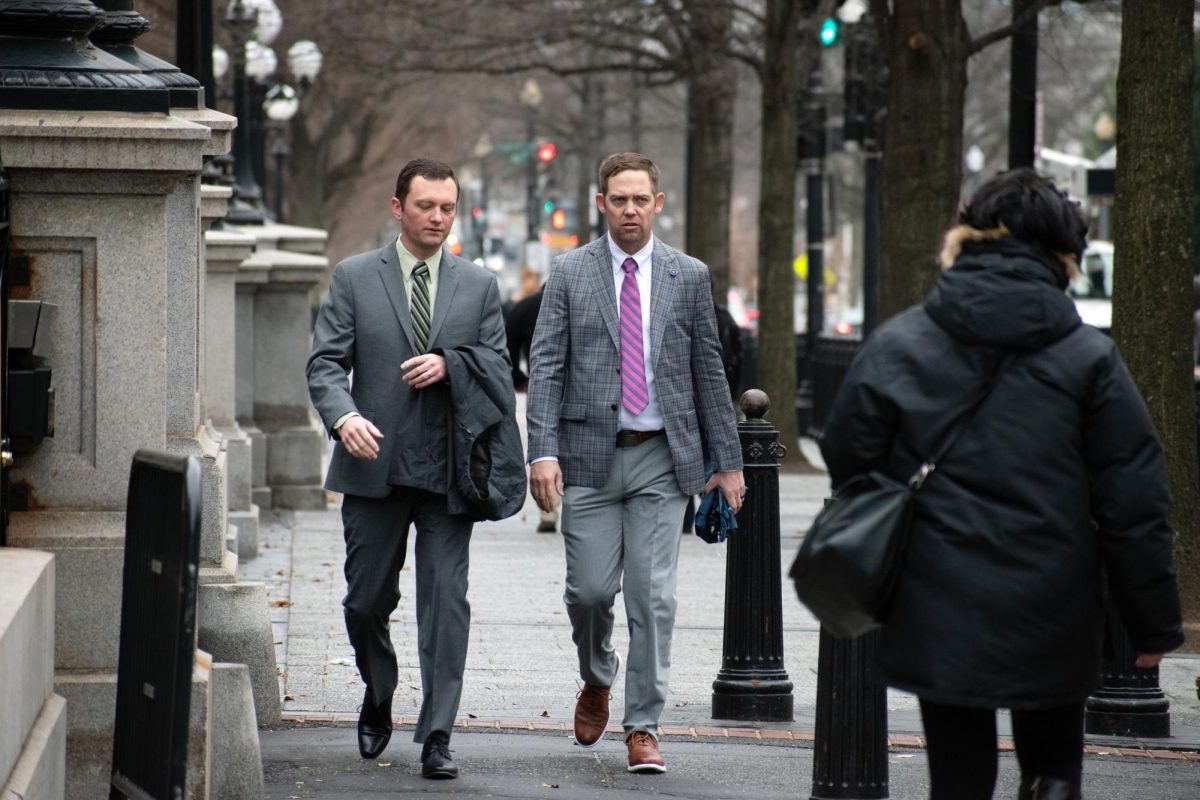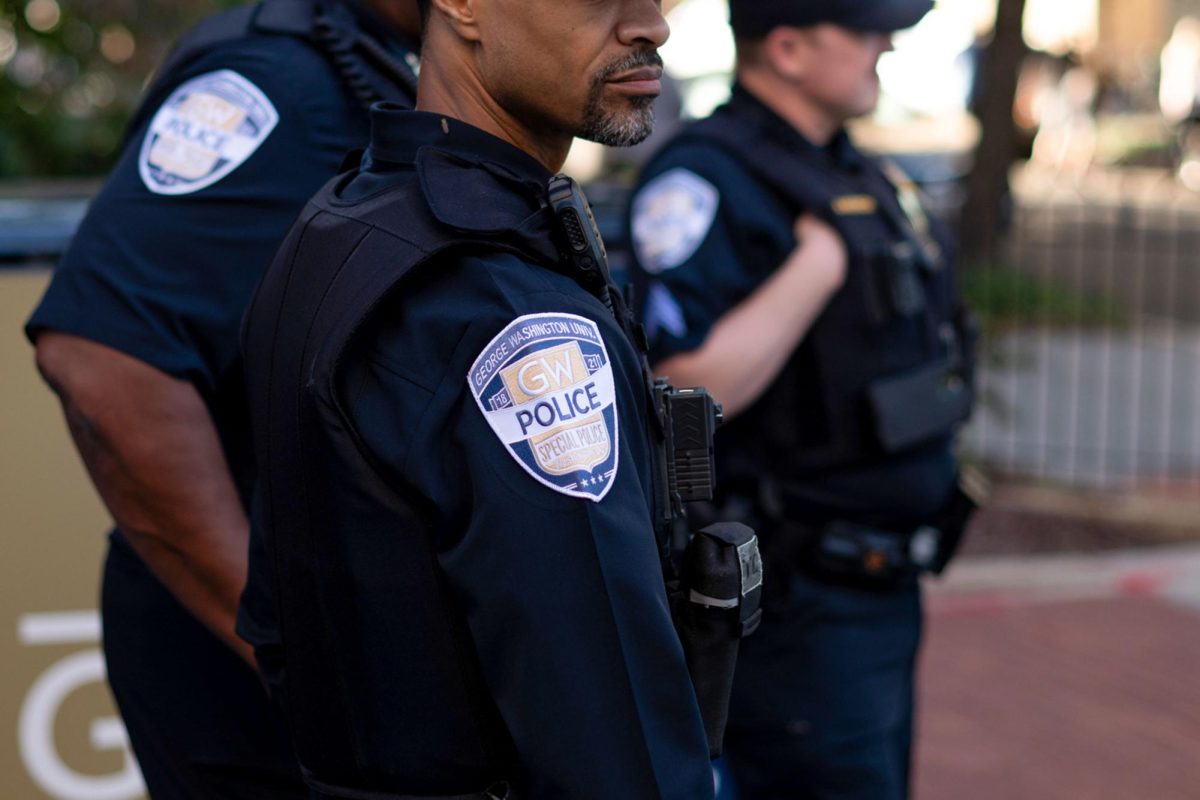Theft spiked at the 7-Eleven at Mitchell Hall last month, breaking a monthslong period during which crime remained infrequent at the store during the COVID-19 pandemic.
Perpetrators committed 16 crimes at 7-Eleven in August, double the amount that occurred during the last five months of the pandemic combined, according to the GW Police Department crime log. GWPD Chief James Tate said officers made five arrests at the store, four of which involved the same individual who committed four crimes at 7-Eleven in one week in mid-August.
The end of summer has historically been a quiet time for crime at the 7-Eleven, as two crimes total have been reported there in the previous five years during the month of August, Tate said. He said an increase in shoplifting cases has driven the recent crime surge, and none of the incidents involved any injuries to store employees.
Of the 16 crimes committed in August, 12 involved second-degree theft, 10 involved unlawful entry and one included simple assault, according to the GWPD crime log. Many of the cases of second-degree theft and unlawful entry occurred during the same incident, the crime log states.
Tate said GWPD officers have maintained “regular contact” with 7-Eleven staff and left their temporary “patrolling duties” to respond to crime reports coming from the store.
“They are no different than any other call for service, but the argument can be made that more calls to one location cause a disproportionately high use of patrol resources, increasing the number of physical contacts between citizens and police,” Tate said in an email.

Sidney Lee | Graphics Editor
He said GWPD is working with 7-Eleven employees to send more frequent patrols and increased visibility to the area if needed. Tate said officers have been monitoring security camera footage near the area and recently launched a look-out, which led to the arrest of the man who repeatedly unlawfully entered the store following multiple arrests last month.
A manager at 7-Eleven declined to comment, citing franchise regulations.
As officers try to prevent last month’s crime levels from continuing at the store, experts said misdemeanors like theft and unlawful entry don’t require heightened apprehension but fail to carry the level of punishment that could dissuade repeat offenders from returning.
Ronald Akers, a former professor of criminology at the University of Florida, said store policy changes or increased foot traffic could influence more misdemeanors since a higher population statistically contributes to a greater likelihood of crime. He said research shows 7-Eleven should schedule more staff members to night shifts and shore up the surveillance system to enhance security in the store.
Akers said one of his former colleagues performed a study on crime at convenience stores, focusing on 7-Eleven, and helped reduce theft to “almost zero” when he recommended owners add one more clerk to shifts at the end of the day.
“If the store is willing to modify its own policies and willing to put a little bit of money, add one more clerk, they could probably get that back down where it was before,” he said.
Akers said it’s difficult to deter a repeat offender like the man who was arrested at 7-Eleven four times because misdemeanors don’t carry much punishment that can stop a suspect from returning multiple times. He said the police can’t do much in turning away repeat offenders either since they can’t levy a felony charge if only four or five misdemeanors have been committed.
The “most effective change” can be made through stricter policy changes at 7-Eleven rather than stronger policing, which “wouldn’t make a big difference,” Akers said.
“There’s not a lot the police can do that they haven’t already done,” he said. “If they’ve apprehended this guy after virtually every time, that’s pretty good, efficient police work.”
Katharine Kravetz, a former professor of criminal justice at American University, said officers should be able to handle situations involving a repeated offender at the store “pretty well” if the threat of the crime remains relatively low. She said minor food and beverage thefts are not dangerous if the subject fails to carry a weapon or threaten other people.
Kravetz said factors like hunger, living location or mental health issues could prompt a suspect to return to the store.
“I would imagine the dilemma when someone is committing a small crime, that’s a dilemma for the city and the police,” Kravetz said. “They are not dangerous in that sense, but they are a nuisance.”
She said social services and the city government can provide mental health resources that police officers might not be able to offer when someone refuses to stop returning to a store.
Kravetz said it might not be “worth the cost” to tighten 7-Eleven security for a repeat offender, as it would discourage other shoppers from entering the store. She said because the subject is not “cleaning out the store” when they shoplift, it might not be a significant concern to the staff.
“If they haven’t done anything up to now, that may say something about what they are really concerned about and it might not,” Kravetz said.








